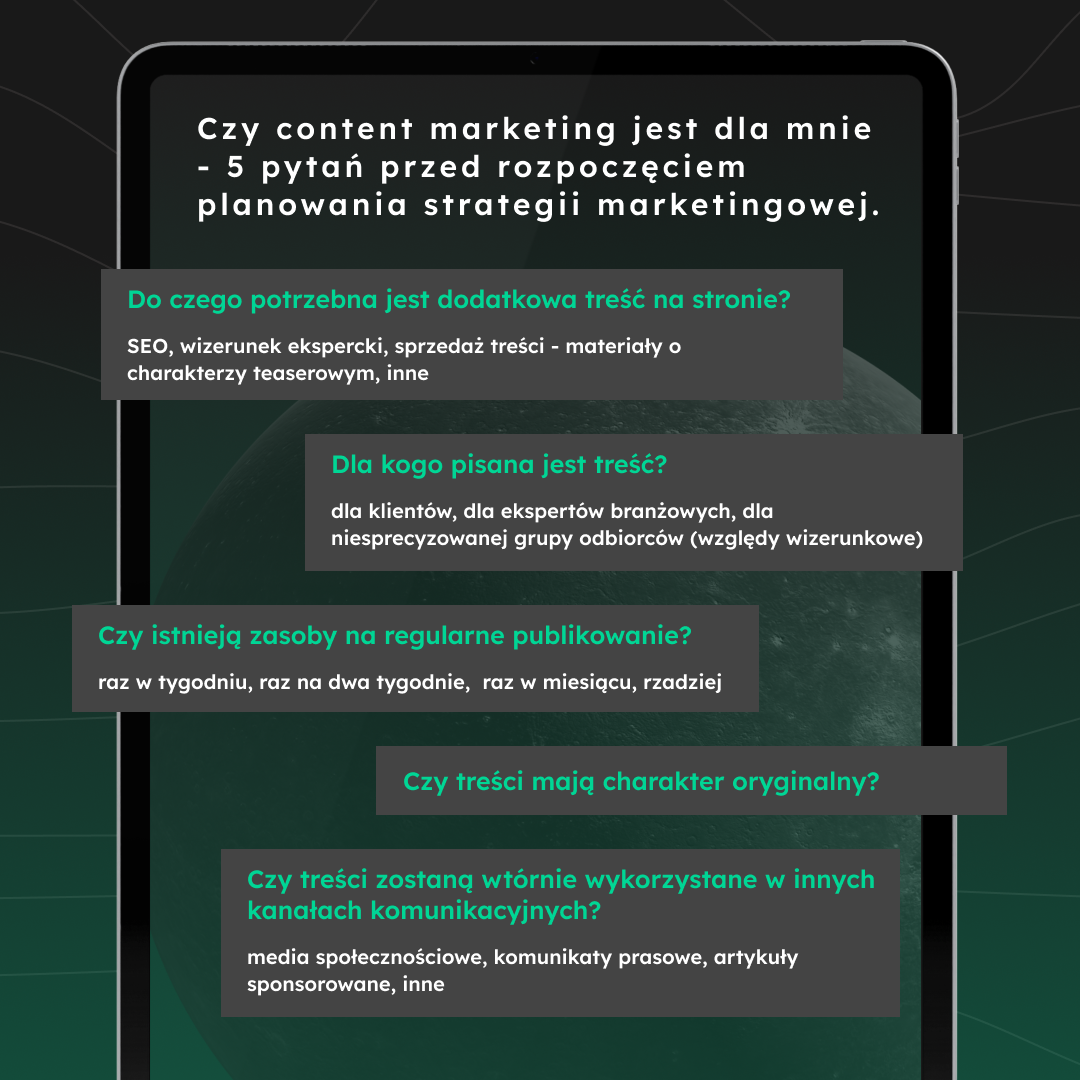This site uses Cookie. Read privacy policy
Logbook
8 April 2022
Content marketing means much more than a company blog
Content marketing has become such a holy grail for marketers in recent years. More than one expert advises introducing this form of brand communication in order to build an expert image. Unfortunately, in our experience, many companies’ efforts fail, so in this article we present a refreshed approach to content marketing.
We are FASTSITE, building an online presence. We support companies, freelancers, influencers or NGOs to develop their brand online. This article is aimed at anyone looking to increase their online visibility. See also:
- Popular website design mistakes
- Profession of the future – influencer
- I need a website, what do I need to know? 5 tips for entrepreneurs
- Website development in 2022 – trends
- Trends in digital marketing in 2022 by FASTSITE
Content marketing in a nutshell
Content marketing has for many years used traditional communication tools such as the press, radio and television, with the advent of the digital age it has also made its home on the web. Since the dawn of time, the essence of content marketing has been to provide the consumer with valuable content in the form of articles, infographics or audiovisual material. The aim is to intrigue the consumer with a specific dose of useful knowledge and build brand awareness.
According to data from IAB Poland in 2017 (newer ones unfortunately not available for Poland) 8/10 Polish companies have used content marketing, 66% of which via the website and 87% on social media. The conclusion is simple, almost everyone is now using content marketing in communicating with customers and in acquiring new leads.
Is a company blog a relic?
Five years of study have taught us that the best answer is: it depends, you sound over-expert then, so it fits this question perfectly. However, before we get carried away in this self-indulgence, let’s get back to the substance. Having a company blog is not a relic! The problem lies elsewhere, more precisely, in the way you run your own website and plan to publish content on your company blog.
Therefore, before a client decides on a website design that includes blog space, we ask about plans for ongoing maintenance of the domain and feeding it with new content. We want the website owner to be aware of the responsibilities and activities of having a company blog.
And here we ask the first question whether the client is planning regular posts, if so, we ask whether the client will be preparing the content in-house or outsourcing. Regardless of the answer, we then suggest planning guidelines in relation to blog posts so that content consistency is maintained. The final question concerns the quality of the content, whether the planned articles / material will be original or secondary to other sources. Copying or translating other sites significantly lowers Google’s confidence in a site.
Do I need content marketing?
The reasons why people opt for content marketing vary: for some, SEO is important, others want to build an expert image, others want to create sales funnels based on content. And then there are those who focus on content because it’s the right thing to do and it’s the fashion. The latter usually get nothing out of it, apart from costs, extra work and posts that nobody reads.
The lack of a content strategy means that most efforts are unsuccessful. Content does not increase sales, and the only visitor to a company blog is the author of the posts and sometimes his relatives. To avoid this situation, it is worth answering five important questions before investing your time and money in an ineffective tool:

Finding the answers to these questions will allow you to assess whether it makes sense to introduce a content marketing strategy. In the event that questions 1-3 are difficult, you should seriously consider abandoning the idea, as it will be content that does not bring tangible benefits.
Summary
Thank you for reading the first of our articles in our series on realising the potential of a website every day. In future instalments, we will tell you more about marketing strategy for small and medium-sized businesses, taking care of SEO yourself, content strategy and using multiple communication channels.
Many companies approach the design and development of their website with care, but this energy fades away afterwards. We therefore encourage you to take a critical look at your communication tools – your website or social media – and consider whether you are using them to their full potential.
If you like our analysis, please feel free to contact us. We would be happy to talk to you about your online business. Write to us or call us, you will find the contact information here.
Photo by Elio Santos on Unsplash